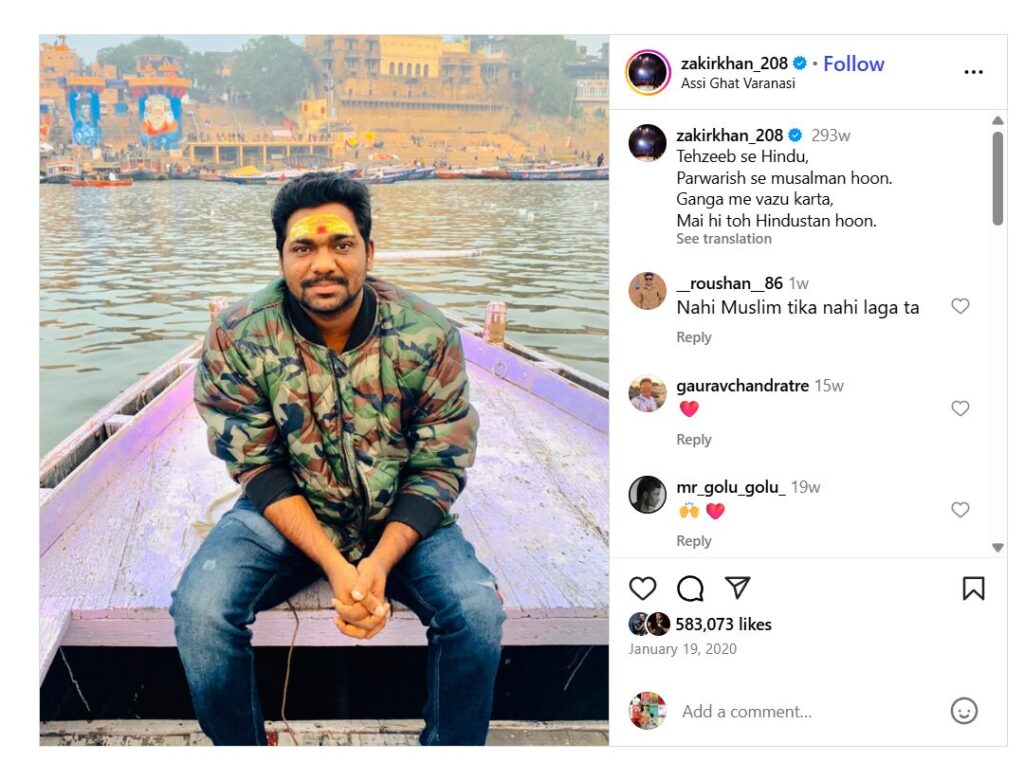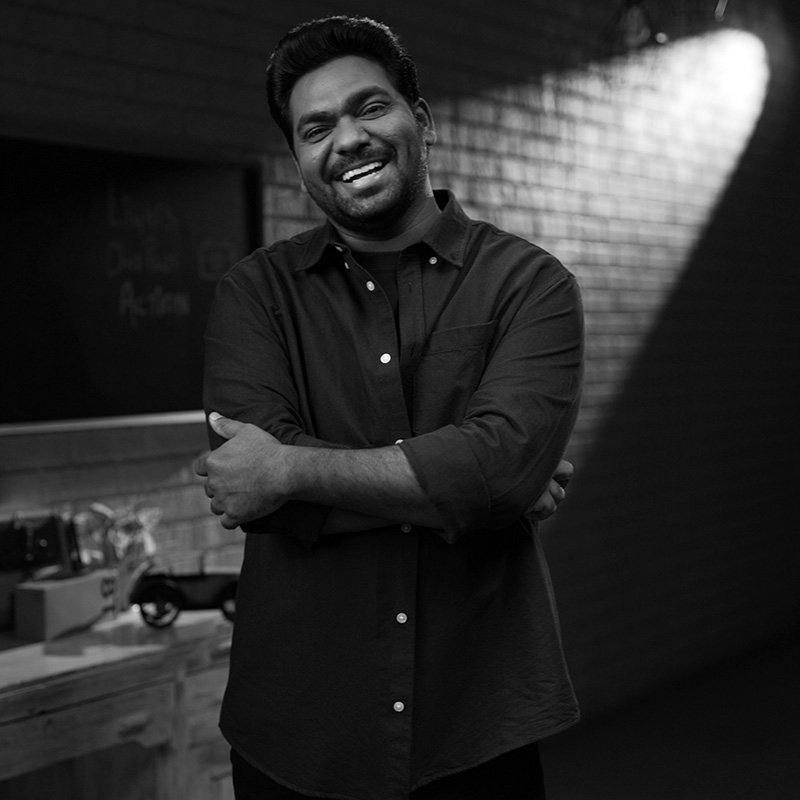picture credit:brandsandentertainment
Sakht Launda, Soft Stand
The Comedy of Playing It Safe
When Zakir Khan walked onto the stage at Madison Square Garden (MSG), Hindi comedy reached the world. The Indian Express headline aptly sums up the achievement and success: “Zakir Khan at Madison Square Garden: The next global comedy superstar may be an Indian.” The show was sold out, and with that, Zakir joined the league of esteemed and famous artists, including Chris Rock, Eddie Murphy, Dave Chappelle, and the legendary George Carlin.
However, the similarity largely ends at performing at MSG. While the comedy of these legends is political, anti-establishment, and a social critique, Zakir has so far avoided going into this realm. His comedy is observational, focusing on relationships, middle-class life, and touching the emotional nerves of the audience. I find him a great storyteller, more than a comic; he can hold the attention of the audience and take them on a journey with him. Zakir is undoubtedly the most successful comic of recent times, and his growth is phenomenal. But as a widely popular artist, should he avoid speaking on social and political injustices happening in our country?
From Indore to Delhi and now the world, Zakir Khan’s journey is a remarkable success story, marked by early rejections and criticism, which he embraced as lessons to shape his craft. He is a gifted storyteller, and that clicked with the audience; most of his audience relate to his stories, be it his “Sakth Launda” persona or “Kasha Gyarvi” act or others. His simple style, observational humor, and no vulgarity made him likable among all age groups. His comedy increased the scope of Hindi comedy and made stand-up mainstream for Hindi-speaking audiences.
Zakir has carefully cultivated a stage persona of a positive, safe, and progressive comic, which resonates with mainstream audiences and aligns smoothly with media platforms and corporate sponsors. This has ensured broad popularity while avoiding any controversy. The financial dynamics also play a role, as most sponsors like uncontroversial content and engaging in political or social comedy could risk alienating the sponsors. Perhaps this is the reason why Zakir chooses not to speak on politics or take a stand on issues concerning the citizens of India. And that’s perfectly fine; he is free to choose the subject he wishes to address.
But it raises an age-old question: Is art truly separate from society? Can it remain aloof from the injustices, discriminations, and atrocities happening around it? Isn’t it the responsibility of an artist to raise their voice against the wrongs in society?
This question becomes more striking when we see Zakir’s own words. In one Instagram post he shares a beautiful sher showcasing his secular and progressive thoughts

Picture credit: zakirkhan_208
तहज़ीब से हिंदू, परवरिश से मुसलमान हूँ।
गंगा में वज़ू करता, मैं ही तो हिंदुस्तान हूँ।
It is a moving expression of harmony and coexistence and sums up his secular thought process. Yet it contrasts sharply with another reality where we see mob lynching, censorship, and attacks on Muslims, Dalits, intellectuals, civil societies, and journalists. My question is how an informed and aware person like Zakir remains seemingly indifferent to these injustices, especially when his secular beliefs are under threat. The most likely reason I can think of is that he deliberately chooses silence on these issues, knowing very well that speaking out could perhaps dent the carefully maintained positive image he projects.
And yet, if you are a true artist, your art should reflect the injustices in the society you live in. You cannot be a mute spectator hiding behind the excuse of being “apolitical” or claiming that you lack the knowledge to comment on the issue. What kind of knowledge do you require to speak against lynching and censorship? Many stand-up comedians are speaking truth to power, who are punching up, speaking about the socially relevant topics like caste, patriarchy, and religion, despite the dangers involved. We have the likes of Kunal Kamra, Varun Grover, Punit Pania, Munawar Faruqui, Manjeet Sarkar, and Daniel Fernandes, who challenge the authority and question the power structure in our society.
The silence of the most visible comic on the pressing issues India is facing means promoting and normalizing apolitical art in a deeply political context. The silence on these issues reassures the majority that “all is well” when it is not, and it sidelines the minority voices. I am not trying to put the onus on Zakir; he represents a wider group of artists who brand themselves as positive, feel-good entertainers. By avoiding engagement with the pressing social and political matters and being silent, they normalize the injustice
Choosing whether to remain ‘apolitical’ or to challenge authority is never easy, but it is crucial. A comedian holds a mirror to society, exposing the injustices and flaws in power structures with a touch of humor. The goal is to make people and authorities notice and acknowledge what is wrong; if it also nudges those in power to act, it is a bonus.
“Silence becomes cowardice when occasion demands speaking out the whole truth and acting accordingly.”
― Mahatma Gandhi
Zakir Khan is a talented comedian and a charismatic storyteller. But to be seen as a true “stand-up” comedian, he needs to take a stand against the power structure. Until then, in my view, he remains a skilled comic, not a stand-up in the true sense, because the essence of stand-up is not just humor, but standing up for what matters.
